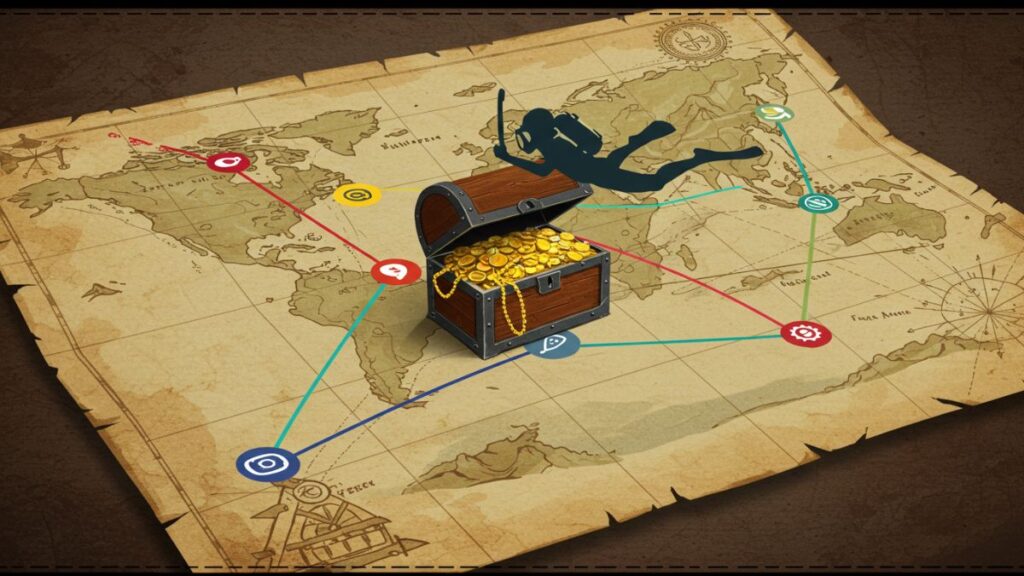In today’s digital era, platforms offering free books can gather massive followings and oceanofpdf is one of the most talked-about names in this space. What started as a simple repository of PDF files evolved into a lightning rod for debates on copyright infringement, authors’ rights, and responsible reading habits. In this comprehensive article, we’ll examine OceanofPDFs history, user appeal, legal challenges, and safer, fully legal alternatives.
The Birth of OceanofPDF and Its Appeal
When OceanofPDF launched, it flooded the internet with promises: thousands of downloadable titles ranging from academic textbooks to bestselling novels, all available without charge. For students grappling with rising tuition costs and avid readers on tight budgets, the platform felt like a digital lifeline. Its clean interface and quick download links made accessing content easier than ever.
Why Users Flocked to OceanofPDFs
-
Cost Savings: Zero subscription fees or per-book charges.
-
Wide Selection: Fiction, non-fiction, scholarly works, and niche interests.
-
Ease of Use: Simple search bar and one-click downloads.
These conveniences cemented OceanofPDFs status as a go-to source—despite unanswered questions about the legality of its library.
Behind the Screens: How OceanofPDF Worked
Under the hood, OceanofPDF relied on user uploads and automated crawlers to aggregate PDF files scattered across the web. Volunteers and anonymous contributors submitted copyrighted material in bulk. Once a file was live, others could mirror it, creating a network of interlinked domains that resurrected files even after takedown attempts.
Key Technical Features
-
Distributed Hosting: Multiple mirror sites kept content alive.
-
Automated Indexing: Bots scanned URLs to update the searchable catalog.
-
Minimalist Design: Fast-loading pages prioritized downloads over aesthetics.
This decentralized approach made shutting down the service a game of “whack-a-mole” for rights holders.
Navigating the Legal Gray Area of OceanofPDF
Although OceanofPDFs marketed itself as a reader’s paradise, it operated squarely in the gray zone of copyright law. Most works it hosted remained under international protection, meaning distributors needed explicit permission from authors or publishers—permissions that were rarely granted.
Legal Implications for Users and Owners
-
Copyright Infringement: Unauthorized sharing of copyrighted works.
-
Liability Risks: Downloaders potentially exposed to cease-and-desist letters.
-
Takedown Notices: Publishers used DMCA procedures to remove infringing copies.
By facilitating large-scale unauthorized distribution, OceanofPDFs ultimately drew the ire of the publishing industry.
The Downfall and Resurgence: OceanofPDF’s Cat-and-Mouse Game
Publishing giants and legal teams repeatedly targeted OceanofPDF, compelling domain registrars to suspend its URLs. Yet, mirroring techniques allowed the site to resurface under new names weeks after each takedown. Users chasing the latest mirror had to beware of fraudulent clones carrying malware.
Timeline of Major Shutdowns
-
2016: First wave of DMCA takedowns; main domain seized.
-
2018: Return via new domain extension; expanded catalog.
-
2021: Major crackdown triggers more secure hosting peers.
-
2024: Sporadic availability amid heightened cybersecurity threats.
This cycle kept oceanofpdfs.com (and its look-alikes) in operation—albeit at the cost of stability and safety.
Assessing the Risks of Using OceanofPDF
Downloading from OceanofPDF may seem harmless—but the threats go beyond potential legal action. Unofficial ebook files can harbor malware, spyware, or adware that compromise your device.
-
Security Risks: Infected files disguised as PDFs.
-
Privacy Concerns: Third-party trackers embedded in downloads.
-
Quality Variance: Scans with missing pages or unreadable text.
For these reasons, it’s wise to weigh the benefits against the dangers before tapping into unauthorized libraries.
Ethical and Legal Alternatives to OceanofPDF
If you value both access and author rights, you have numerous legitimate options—many of them free or low-cost.
1. Project Gutenberg
A pioneer in free ebooks, offering over 60,000 public-domain classics with guaranteed legality.
2. Internet Archive & Open Library
Nonprofit services lending millions of books digitally through controlled lending, ensuring rights holders remain protected.
3. Google Books
Hosts a mix of public-domain and preview-only works; integrates with Google Play for affordable purchases.
4. Library Apps (Libby, OverDrive)
Use your local library card to borrow ebooks and audiobooks at no charge.
5. Subscription Services (Kindle Unlimited, Scribd)
For a flat monthly rate, gain access to extensive catalogs while respecting royalties.
These alternatives ensure you support authors and publishers while enjoying a worry-free reading experience.
Maximizing Your Reading Budget Without OceanofPDF
If cost remains a barrier, consider these tactics:
-
Library Sales & Used Books: Physical copies for a fraction of retail price.
-
Promotional Bundles: eBook deals on platforms like Humble Bundle.
-
Student Discounts: Many retailers and subscription services offer academic pricing.
By combining these strategies, you can build a vast personal library without resorting to unauthorized downloads.
Final Reflections on OceanofPDF’s Legacy
While OceanofPDF demonstrated the immense demand for accessible digital content, it also underscored the complexities of intellectual property in the internet age. Its rise and fall remind us that true innovation in publishing must balance free access with fair compensation for creators.


